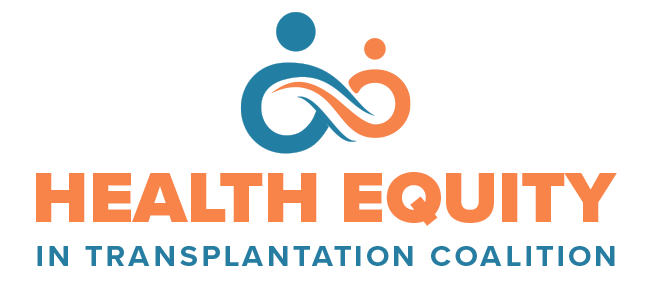HEiTC’s Al B. Sure! and Rev. Al Sharpton to CMS: Restore Medicare Coverage for Life-Saving Blood Tests for Organ Transplant Recipients Without Ties to Invasive Biopsies
Call comes as transplant recipients on Medicare mark one year without access to blood test able to catch rejections early
New York, NY – March 6, 2024 -- The Health Equity in Transplantation Coalition (HEiTC) – representing Black, Brown, and minority transplant patients nationwide – is calling on the Centers for Medicare and Medicaid Services (CMS) to restore Medicare coverage for critical diagnostic blood tests without any ties to biopsies. Last week, CMS issued a revised Billing Article and public statement highlighting a revision to its March 2023 coverage policy, which linked the administration of blood tests to a biopsy. In a statement from HEiTC Executive Chairman Al B. Sure! and Senior Advisor Rev. Al Sharpton, the Coalition noted the change does not clarify the level of access that Medicare recipients have to life-saving care.
“We appreciate that CMS has taken steps to address the confusion caused by the March 2023 billing article – across the country, doctors stopped administering blood tests to patients on Medicare on the grounds that they would no longer be covered. But the CMS revision and statement last week does not clarify whether access to these tests for organ transplant recipients on Medicare is tied to a biopsy. Biopsies are painful, risky, and are often prescribed too late – by that point, organ rejection may have already begun. The purpose of these blood tests is to catch a rejection before it happens, which is nearly impossible if they are linked to a biopsy. We pray that is no longer the case, and we urge CMS to publicly clarify to the transplant community, healthcare providers, and all others whether that is the case.
The lack of clarity on this issue continues to put a vulnerable population of overwhelmingly Black and Brown transplant recipients at risk. This is an injustice against those on public health insurance, who rely on it to help with their daily journey toward recovery. They have now been left without a shield for a year as they fight against this bureaucratic confusion. We will not give up on the fight, as we continue to call on CMS to fully restore Medicare coverage for these tests as it works to finalize its coverage policy. A year of confusion shouldn’t set the precedent for a lifetime of uncertainty.”
The milestone anniversary comes as Al B! and Rev. Sharpton last week applauded BlueCross BlueShield of South Carolina for its decision to cover routine cell-free DNA testing for kidney and heart transplant patients without any ties to biopsies.
These lifesaving tests are critical to detect possible early signs of organ rejection, even before there are apparent clinical signs or symptoms, and enable medical intervention to protect the transplanted organ. One year ago, Palmetto GBA, a private Medicare Administrative Contractor that runs the MolDX program scaled back coverage of these non-invasive diagnostic tests. Lawmakers from both sides of the aisle have weighed in. In August, a bipartisan letter signed by 14 members of the House of Representatives led by Reps. Anna Eschoo (D-CA) and Dr. Michael Burgess (R-TX), expressing concerns about the March rollbacks was sent to CMS and earlier this year, Congressional Black Caucus Chair Steven Horsford also raised this issue in a letter to CMS and the Department of Health and Human Services.
Organ transplant care is critical for Black, Hispanic and Latino Americans, who together represent 40 percent of transplants in the U.S. — well above the 32 percent of the general U.S. population. Additionally, Black Americans rank lowest in graft and patient survival among recipients of solid organ transplants, due in part to higher immunological risk leading to higher rejection rates, making blood tests a critical component of their post-transplant care. Compounding the issue, an astounding 50 percent of those on the 100,000 person transplant waiting list are Black or Hispanic/Latino, making access to transplantation and equitable post-transplant care an important and growing issue in this community.
###
